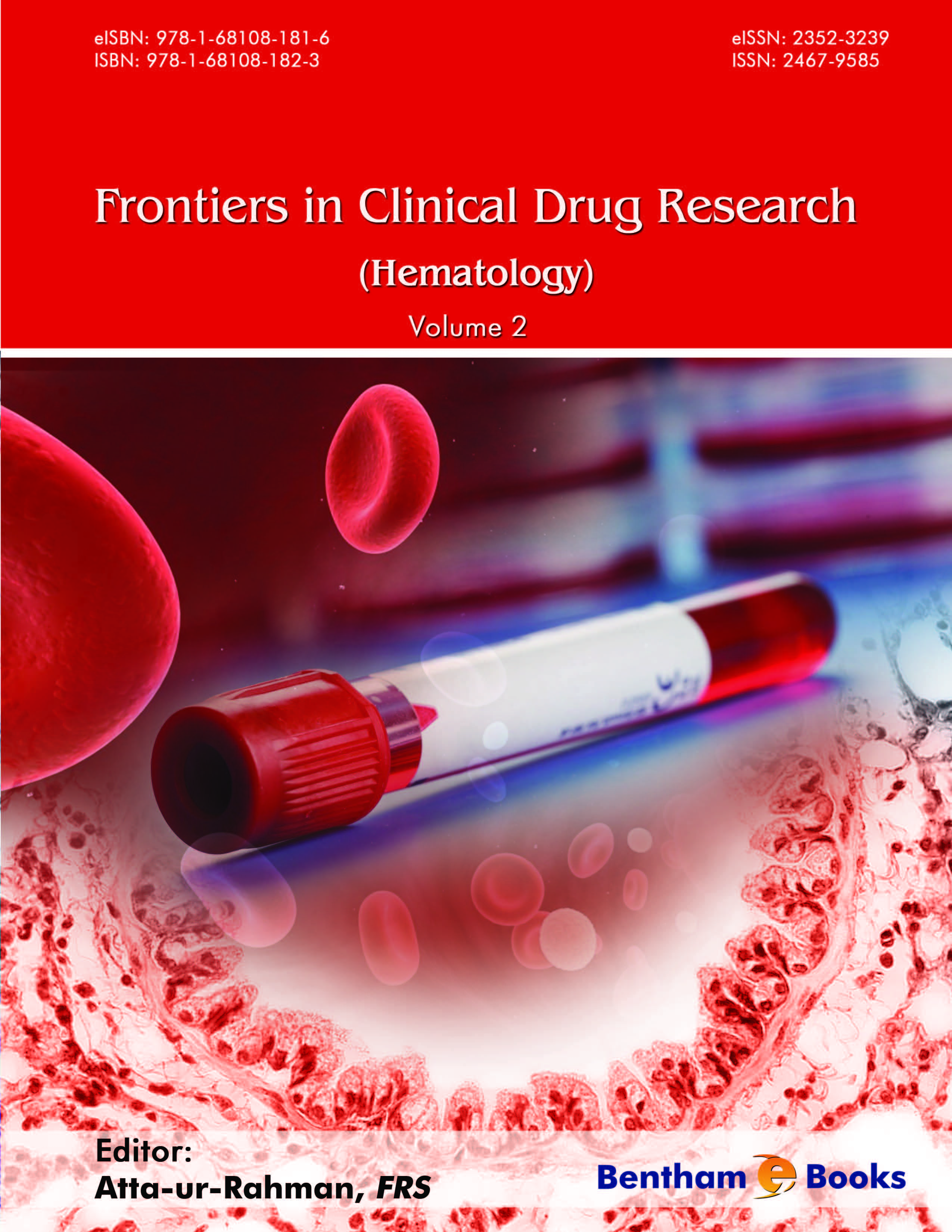Introduction
Frontiers in Clinical Drug Research – Hematology
is an eBook series that brings updated reviews to readers interested in learning about advances in the development of pharmaceutical agents for the treatment of hematological disorders. The scope of the eBook series covers a range of topics including the medicinal chemistry, pharmacology, molecular biology and biochemistry of natural and synthetic drugs employed in the treatment of anemias, coagulopathies, vascular diseases and hematological malignancies. Reviews in this series also include research on specific antibody targets, therapeutic methods, genetic hemoglobinopathies and pre-clinical / clinical findings on novel pharmaceutical agents. Frontiers in Clinical Drug Research – Hematology is a valuable resource for pharmaceutical scientists and postgraduate students seeking updated and critically important information for developing clinical trials and devising research plans in the field of hematology, oncology and vascular pharmacology.
The second volume of this series features 5 chapters that cover a variety of topics including:
- - Chronic myeloid leukemia
- - ispecific and multivalent antibodies
- - Natural Killer cells therapy for bone marrow transplantation
- - Nanoparticles in health and disease
- - Monoclonal antibody therapy for lymphoma

